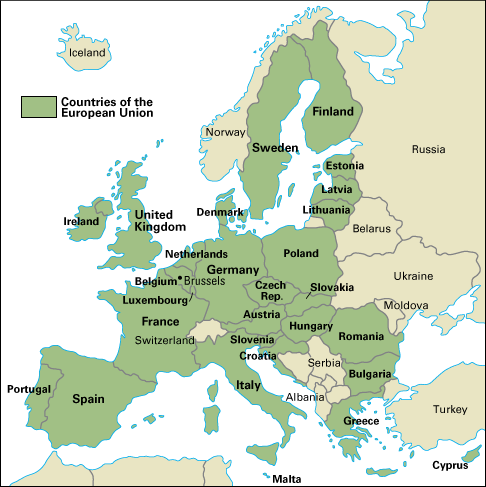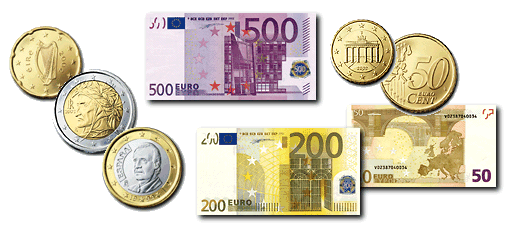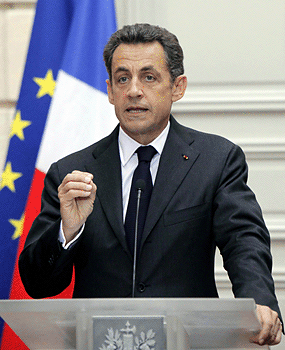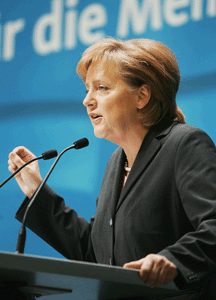European Voters Reject Austerity
Monday, May 7th, 2012May 7, 2012
Francois Hollande has won the second round of France’s May 6 presidential election. Hollande took just under 52 percent of the vote, compared with President Nicolas Sarkozy’s 48.3 percent. Sarkozy, who campaigned on a promise to reduce France’s large budget deficit, is the first president not to win a second term since Valery Giscard d’Estaing in 1981.
Francois Hollande promised to refocus the response to the eurozone debt crisis on growth and jobs rather than austerity. Austerity in some eurozone countries has involved severe budget cuts, including the elimination of many public jobs, reductions in pensions, and increases in personal taxes. Hollande instead has pledged to raise taxes on big corporations and on people earning more than 1 million euros ($1.4 million) a year. He has also proposed to raise the minimum wage, hire more teachers, and lower the retirement age from 62 to 60 for some workers. Hollande is France’s first socialist president since Francois Mitterrand, who held office between 1981 and 1995.
In parliamentary elections in Greece, also on May 6, voters turned away from the two dominant political parties, instead voting in protest for the far left and neo-Nazi right. The elections were the first public test of the European Union (EU) bailout of Greece’s national debt and the subsequent austerity program that Greece was forced to adopt. Analysts noted that the outcome was clear–a complete rejection of that agreement.

Member nations of the European Union (EU).

The euro is used by 17 member nations of the European Union. European Central Bank
While Mr. Hollande has said that he intends to give “a new direction to Europe”–specifically instituting measures to stimulate economic growth–German Chancellor Angela Merkel made plain today that she was not open to renegotiating Europe’s current program of austerity. “I may say from my side that Francois Hollande will be welcomed with open arms here in Germany by me,” stated the chancellor at a press conference in Berlin. “We will work together well and intensively.” However, Merkel insisted that the fiscal pact she negotiated with President Sarkozy and endorsed by 25 EU member nations is “not negotiable.”
Additional World Book articles:
- Crisis in the Eurozone (a special report)
- Economics 2011 (Back in Time article)
- France 1958 (Back in Time article)
- France 2011 (Back in Time article)
- Greece 2009 (Back in Time article)
- Greece 2010 (Back in Time article)
- Greece 2011 (Back in Time article)




